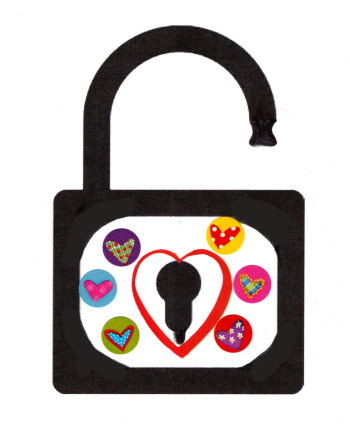Mini-Love-Lesson #283
Synopsis: How to carefully be self-disclosing and handle hurt if doing so backfires; 5 kinds of self-disclosure to consider; and how self-disclosure is needed for intimate relationships are part of this mini-love-lesson.
Vulnerability is an aspect of self-disclosure, admittedly sometimes a scary one. Risking exposure can set one up to being hurt or harmed. It also can open one to closeness, intimacy, inclusion and to being better liked and loved.
Five classifications of vulnerability have been identified in psycho-social research:
1. Emotional vulnerability
2. Relational vulnerability
3. Social vulnerability
4. Physical vulnerability
5. Material and economic vulnerability
Regarding self-disclosure, each of these five have a variety of different benefits and different dangers in sundry relationships. For love relationships, relational and emotional benefits and dangers are the most common. However those that are physical and economic sometimes may be the most severe.
Although self-disclosure is one of the major ways to go from a shallow relationship to a more profound one, it behooves us to be careful about disclosing too much too soon. If a relationship is not ready enough, an overly revealing self-disclosure can backfire. Making known what we think, feel and want in a love relationship is important to the health of that relationship, but timing is also important. Relationships usually have to have time to develop and strengthen before heavier aspects can be successfully tackled.
If after a self-disclosure, a rejection, considerable emotional pain, hostility, distancing, alienation or abandonment occur, the relationship probably was not ready or mature enough to handle that self-disclosure. Self-disclosures from the deepest layers of the self, need to be considered precious and treated protectively. Therefore, to offer them up too early can be a mistake.
Clinical research suggests that healthy self-love and doing what is called owning your own okayness decreases the risk factor and may increase the benefits of sharing our private self. Therefore, it is advisable to do risky self-disclosures only when your healthy self-love is strong enough to stand adverse reactions that may occur. If we have substantial anxiety about being rejected, embarrassed, shamed or seen as inadequate, inferior or deficient in any other way, we might need to work on our self-love and self-affirmation before risking too much vulnerability. Every day suggestions for doing that involve the following:
Five Everyday Ways to Be and Stay Okay
1. Own your power and don’t give it away – every day.
2. Always be 51%, or more, of the vote on your own okayness – every day.
(see “Number 51: Your Super Tool for Self-love”)
3. Identify yourself as the hero and not the victim in your own life story (no matter how many secret advantages victimhood might seem to offer) –every day.
4. Focus far more on solutions than blame or fault finding – every day.
5. Actively love yourself as you love others whether or not they love you back – every day.
There is a grand reward that often comes from becoming vulnerable through self-disclosure. When we take off our outer, protective layers and expose our innermost selves, while we join with others doing the same, we can experience a profound comfort of loving togetherness.
As always, Go and Grow with Love
Dr. J. Richard Cookerly
♥ Love Success Question: Is going psychologically naked with a loved one more or less frightening than going physically naked?


No comments:
Post a Comment